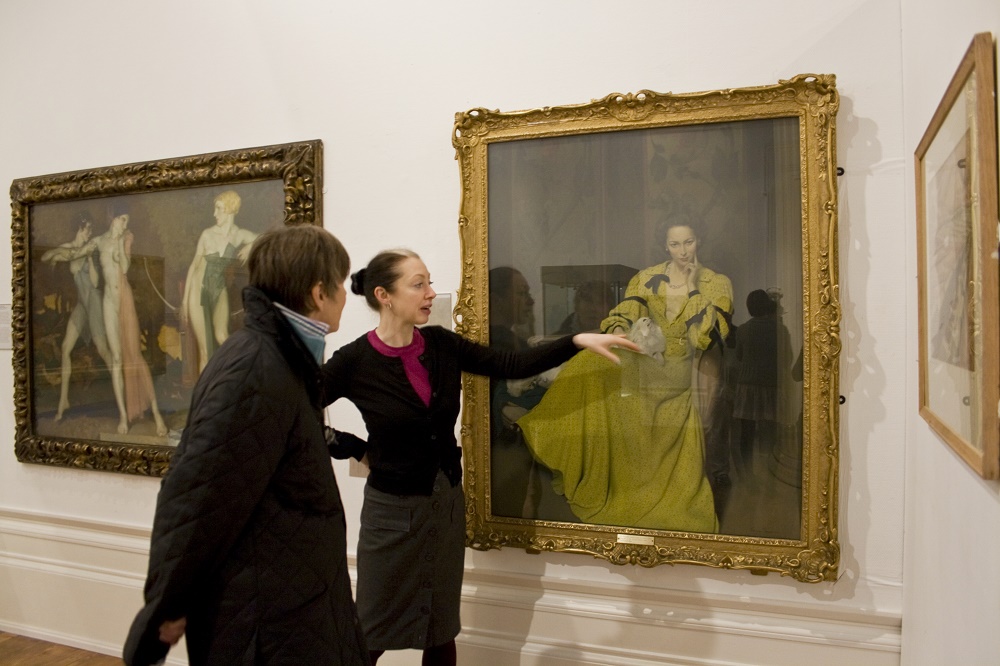
Haweswater by Sarah Hall
Book 5 of our North West Reads is Haweswater by Sarah Hall
This debut novel, set in the 1930s, takes its inspiration from the creation of the Haweswater Reservoir and the flooding of Mardale in the County of Westmoreland. Mardale was a quiet, hard-working farming community, used to the vagaries of the weather and its changeable nature. Families had lived here for generations, passing on the tenancies and forming a strong bond with the land. Some of the old farm building dated from the sixteenth century, including Whelter Farm, home of Samuel and Ella Lightburn.
Ella, a tough, formidable and god-fearing woman, is in the process of giving birth to her daughter, Janet, at the opening of the novel. In extreme pain waiting for the doctor, who is struggling to get into the valley in the depths of winter, she blasphemes her way through the labour. After the birth, still in her nightshift, she insists on going to the small church to pray for forgiveness for the language she has used.
She had met Samuel when she was working as a nurse during World War I. He was one of her patients. They married and he returned with her to the valley and the farm. A quiet soul, he would act as peacemaker between his daughter and his wife as Janet had inherited the strong and stubborn nature of her mother.
Though remote, Mardale is not completely cut off from the outside world. Many of the families have radios and so are able to keep themselves informed of current events. The teacher at the small village school, Hazel Bowman, regularly brings local and national newspapers to the school. The London papers are a particular favourite with the children and are carefully read over by them.
Miss Bowman is one of the generation of new women, entering professions that women had previously been excluded from (although they had to stay single as marriage bars were in place at this time). The politically conscious Miss Bowman is not paid well, her motivation is the progress and achievements of the children. She takes particular pride in the ones who go to college or university.
Janet proves to be a keen student and absorbs the news of the era voraciously: Amy Johnson, hunger marches and the rise of fascism in Europe. Bowman would eventually leave the valley to fight in Spain.
Though well informed of current events the villagers are innocently unaware of plans the outside world has for them. In these days long before Westmoreland and Cumberland became Cumbria, and the Lake District became popular national park, the area received few visitors. Much of the land was in the hands of private landlords and the tenants of Mardale live on the Lowther Estate owned by the Earl of Langdale.
The Earl no longer lived in Measand Hall, near the village, and has rented it out to an incomer, an artist called Paul Levell. He had served in the First World War and came out of it suffering from the effects of shell shock. He moved away from his previous style of painting to paint landscapes of the area, presumably finding some emotional peace from the dramatic landscape and its ever changing moods. It is he who first spots the swanky red car, driven by a very smartly dressed man, travelling through the valley and coming to a stop at the village.
In comparison to the occasional hill walker, and one or two geologists quietly researching the valley, this visitor stands out. His name is Jack Liggett and he is a representative of Manchester City Waterworks, a messenger who would bring news that would spell the end of Mardale and their way of life forever.
The geologists that the villagers paid little attention to were surveying their valley; the type of rock and geography of the valley are perfect for the creation of a reservoir to feed Manchester’s industries. People know that another war is on its way and the needs of the nation override the rights of the people of Mardale.
With no policy of public consultations at this time an Act of Parliament, the Haweswater Act, has already been passed by Parliament and the land acquired by the Waterworks by compulsory purchase. It is a fait accompli, a done deal. Jack is there to talk to the villagers, smooth matters over and help them move on to new homes and livelihoods. They are told that their tenancies will not be renewed in the spring.
By this time Janet is a young woman and has taken over as the teacher at the school. Her mother would like to see her married, but fears that her strong character, and even stronger opinions, will put any man off. Janet will not passively accept the plans to flood her home without trying to challenge them, and she doesn’t care if some of the menfolk disapprove of her, as a woman, getting involved in the future of the valley.
Jack hears through the grapevine that Janet is consulting a solicitor in Carlisle. He gets on well with the locals, supping ale with them at the village pub, The Dun Bull. A chance meeting with a local man in the pub, a poacher, and a request made on an impulse, would have serious consequences for him and for Janet in the future.
Jack is intrigued by Janet, with her tenacity and imperviousness to the cold of the Lake District. On a walk he meets Janet’s younger brother, Isaac, who is fascinated with lakes and streams and the wildlife in them. Isaac likes Jack, Janet hates him for what he is doing but is attracted to him at the same time, an attraction that is reciprocated and they begin a secret relationship. Janet has managed to persuade Jack to negotiate a delay to the evictions till the end of 1936 so the farmers can reap a final harvest.
Jack has his own secrets; he’s not from a well-to-do background but has managed to work his way up from his working class background. He has also loved the Lakes since he was a boy and used to travel out from Manchester to walk the fells. Both have broken out of the straightened gender and class barriers of the previous generation, however it is still an age when to show deference to authority was the norm. The community grumbles about the plans for the Dam and the evictions from their homes, but they accept that they cannot change this and their way of life in the valley will come to an end.
The wiping out of a centuries old way of life and the incursion of the needs of the modern industrial world is both gentle and brutal, as the families quietly pack up, find new homes and watch their old village being razed to the ground. A nod to the coming war, soldiers come to the valley to practice using explosives on the largest building, Measand Hall.
Outside of Westmoreland an economic depression has devastated the North and its casualties flock to the valley to work on the Dam. As the valley empties of people, the Dam and the water rises, and the reservoir begins to take shape. As this is progressing, the relationship between Janet and Jack finally comes out into the open and this is a cause of conflict between them and Janet’s family (particularly her mother) and the community.
This is a beautifully written debut novel by Sarah Hall. I have walked widely in the Lake District and her descriptions of the landscape, the colours, smells and sounds, are brilliantly evoked along with the sense of time and place. It is a time in history when the lives (and opportunities) of women and working people were changing rapidly, changes that would be accelerated by the coming war.
The experience of Mardale reflects of the upheavals to come to society and people with the impact of worldwide conflict. With the creation of the Lake District National Park after the war, Haweswater became just a part of the picturesque landscape. Tourist and walkers would more than likely be unaware of village’s existence; however over the years, during particularly dry summers, the remains of the farms and buildings have emerged from the receding waters, a reminder of a community lost long ago.
Written by Janet - Library Assistant

Friends of the Harris
Join us today
Help more of Preston’s people enjoy the Harris by becoming a Friend – and you’ll get closer to artists, curators and collections too.
Find out more
Support us
Your community needs you
A donation from you today will support local people, including those most in need, by helping to create #HarrisYourPlace for everyone.
Donate now
